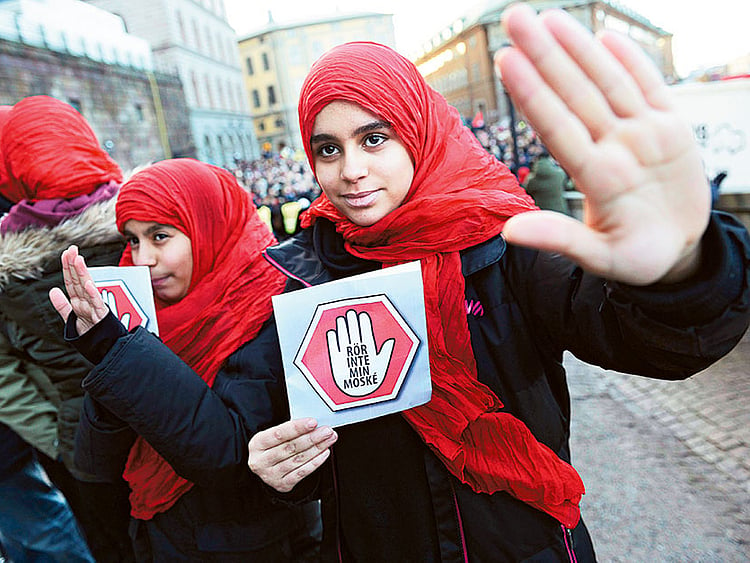The floodlights of Cologne cathedral will be switched off as a counter-protest against a planned anti-immigrant march, due to take place in the city on Monday night.
Thousands of marchers, coordinated by a new far-Right protest movement, have demonstrated in Dresden in recent weeks against what they say is the “Islamisation” of the country by Muslim immigrants.
The announcement came as Angela Merkel’s Bavarian coalition partners urged a radical overhaul of Germany’s asylum system, including the swift deportation of those turned down for refugee status.
Bavaria’s ruling Christian Social Union, which is also a member of Merkel’s federal coalition, has proposed a new fast-track asylum process, based on the system used in Switzerland, in which “simple” cases would be decided in just six weeks. A senior CSU figure, Joachim Hermann, the Bavarian interior minister, has called for those whose applications are rejected to be deported.
Asylum applications currently take an average of eight months to be processed in Germany, which has led to hunger strikes by refugees who say they are left in limbo, unable to work or earn a living until their cases are decided.
Under the CSU proposal, applicants from a country considered safe – or who have already registered in another European Union country – will have their cases decided on fast track.
The move is seen as a response to the anti-immigrant protests, which brought 17,500 people on to the streets of Dresden before Christmas under the banner of Pegida, or “Patriotic Europeans against the Islamisation of the West”.
A sharp rise in the number of people seeking asylum has placed the German system under strain. The protesters have denounced asylum seekers who they say are not genuine refugees.
But critics have accused the demonstrators of racism and xenophobia. Merkel, the Chancellor, used her New Year’s address to urge Germans: “Do not follow those who have called the rallies. Because all too often they have prejudice, coldness, even hatred in their hearts.”
The Dresden protests are due to resume on Monday and political leaders are waiting to see if they will be able to sustain the momentum that saw them grow from a few hundred demonstrators to thousands in a matter of months.
A similar march has been called on Monday in Cologne.
So far, attempts to replicate the success of Dresden’s Pegida in other cities have failed, but the authorities at Cologne cathedral are taking no chances, and have pledged to turn off the lights in Germany’s leading tourist attraction to mark their disapproval.
Sign up for the Daily Briefing
Get the latest news and updates straight to your inbox
Network Links
GN StoreDownload our app
© Al Nisr Publishing LLC 2026. All rights reserved.
